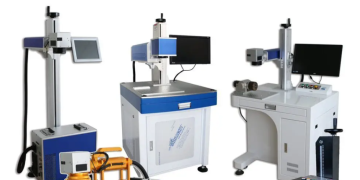It is disheartening to learn that your child has a learning disability. It is, however, imperative to know that this does not mean that the child lacks intellect. Your child can be smart yet still experience some cognitive difficulties.
A certain level of brain impairment characterizes learning disabilities to receive, analyze, store and process information. A Specific learning disability, commonly referred to as a learning disability, is a neurological disorder that affects a child’s ability to write, read, speak, listen, think, spell, or perform mathematical calculations.
It begins early in life, and a child with a learning disorder will grow up to be an adult with learning disabilities if not intervened at an early stage. These disabilities occur due to neurological or genetic factors that can affect one or more cognitive processes related to learning.
Plus, these processing problems can interfere with basic and higher-level skills such as time planning, organization, abstract thinking, long- or short-term memory, and attention.
However, since difficulty in reading, writing, or math calculations are recognizable issues during the early school years itself, it is advisable to opt for Specific Learning Disability Treatment during that time.
Here’s the list of 5 types of Specific Learning Disabilities:
Dyslexia
Dyslexia is a learning disorder that affects a child’s auditory and visual processing abilities. It is a condition that makes it challenging for the child to understand text and speech. If your child has dyslexia, reading, writing, and speaking will be complicated and overwhelming for him. It is a condition that may occur in children with normal vision and intelligence.
Symptoms include:
- Difficulty in spelling words
- Difficulty in reading comprehension
- Difficulty in identifying similarities and differences of letters or words,
- Difficulty in remembering the sequences
Dysgraphia
Dysgraphia is a disability that affects a child’s writing ability and fine motor skills. It is hard for the child to write if he has Dysgraphia. They might find difficulty holding pens or pencils and forming letters, while some lack the spatial awareness to produce text.
Symptoms include:
- Holding a pen or pencil improperly
- Messy handwriting
- Taking too much time to write
- Poor grammar
Dyspraxia
It is a developmental coordination disorder in which a person mixes words and sentences while talking. In people with Dyspraxia, language comprehension does not match language production, leading a child not to perform more efficiently than expected. The affected person might lack hand-eye coordination skills.
Symptoms include:
- Abnormal posture
- Poor hand-eye coordination
- Balance and movement issues
- Trouble learning new skills
Developmental Aphasia
Aphasia is a severe disorder that occurs due to injury to the brain (most commonly from a stroke) rather than due to developmental delay. It affects the ability to speak or understand language and even read or write, particularly in older individuals.
Symptoms include:
- Speak short and incomplete sentences
- Speak and write sentences that make no sense
- Speak unrecognizable words
- Can not understand other people’s talk
Dyscalculia
It is common that people dislike mathematics and find trouble solving questions, but they eventually understand it with enough practice. However, people with this Specific Learning disability fail to understand numbers and even the basic concepts of maths. About 2 to 5% of the population is affected by dyscalculia.
Symptoms include:
- Difficulty in reading analog clocks
- Problem with addition, subtraction, and mental arithmetics
- Difficulty in telling which of the two numbers is larger or smaller
- Problem with directions, time, recalling sequences of events





























































